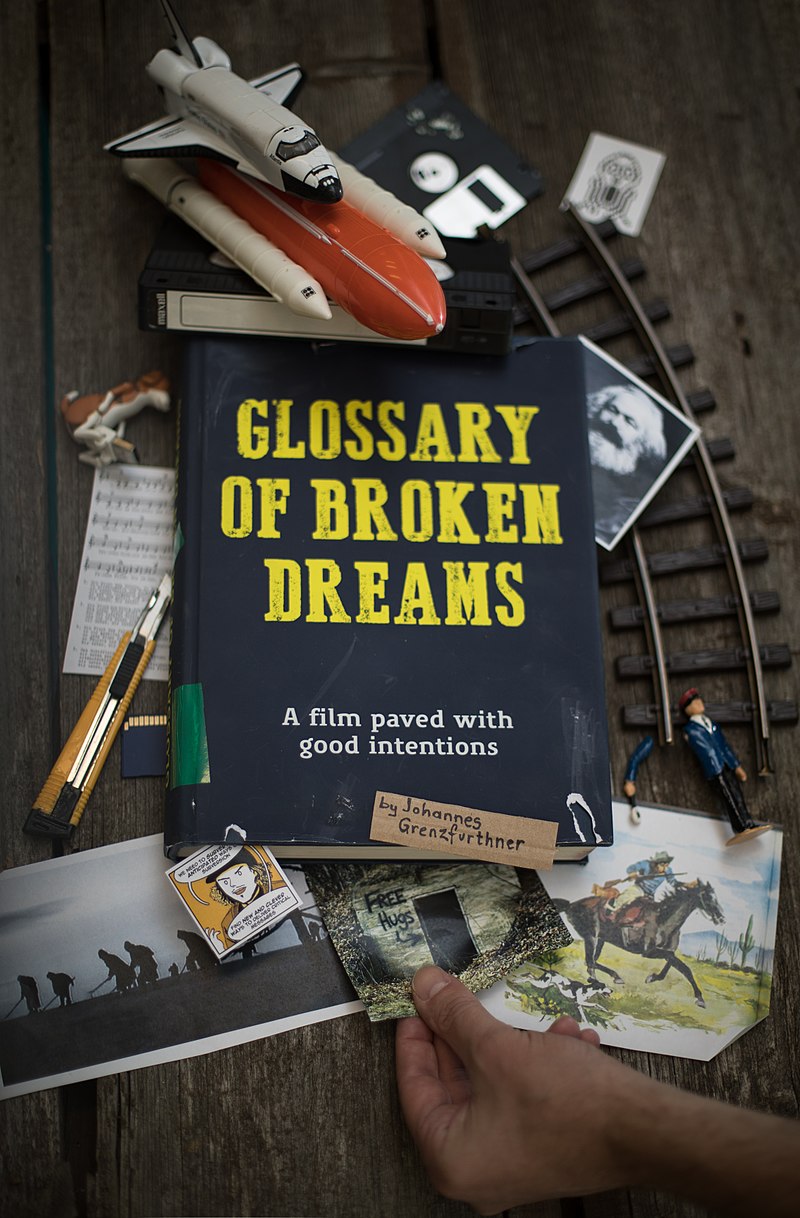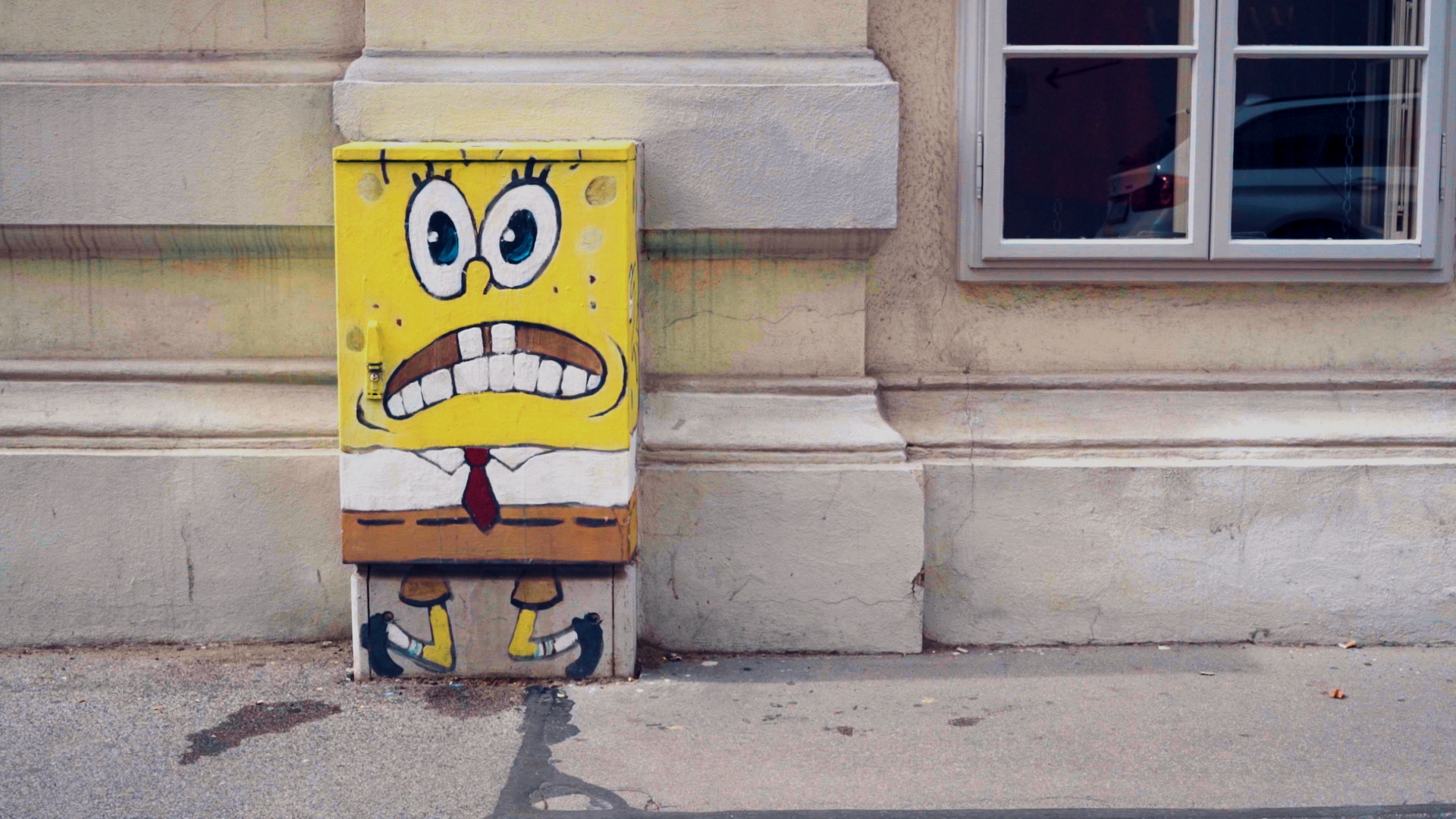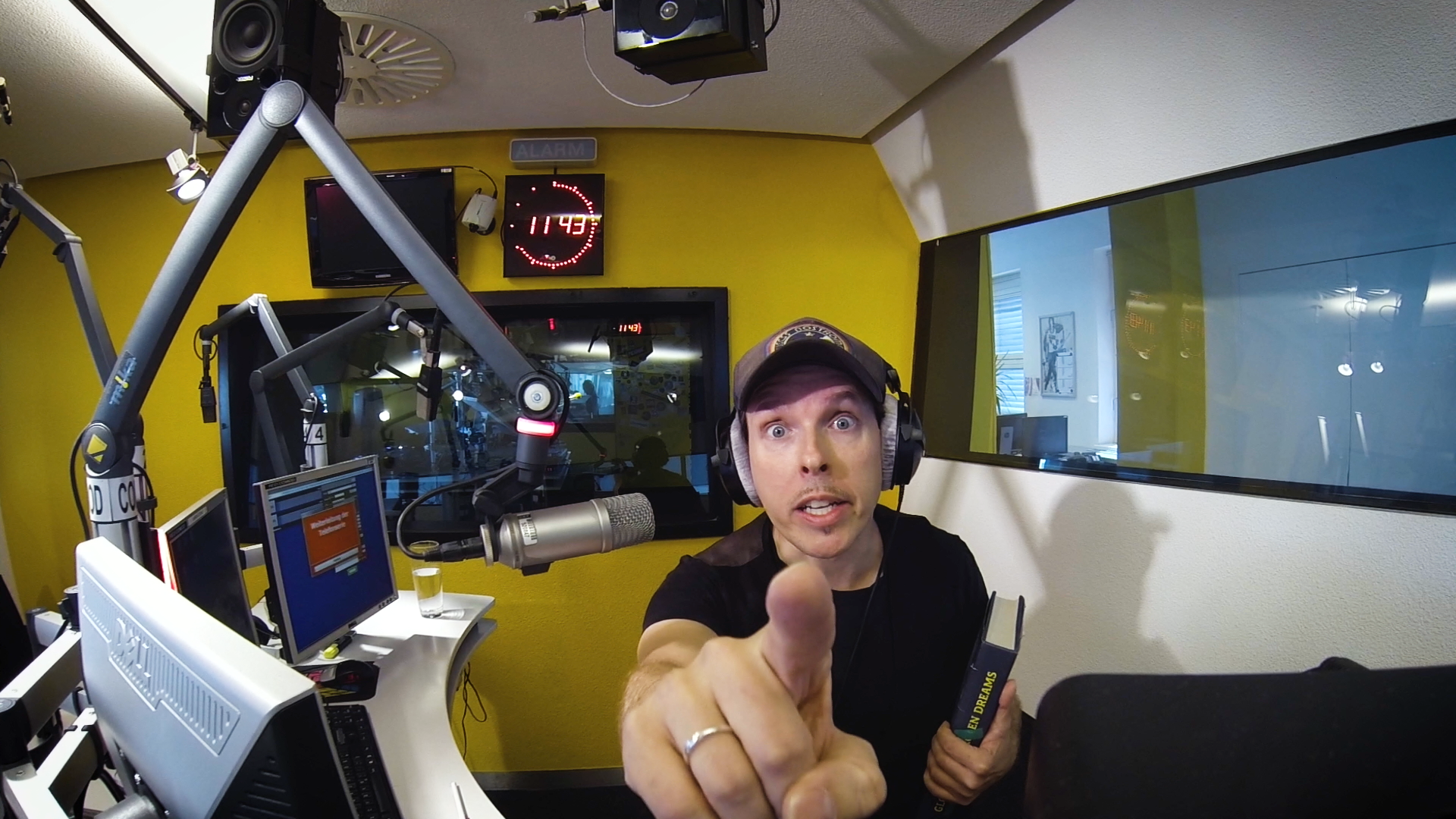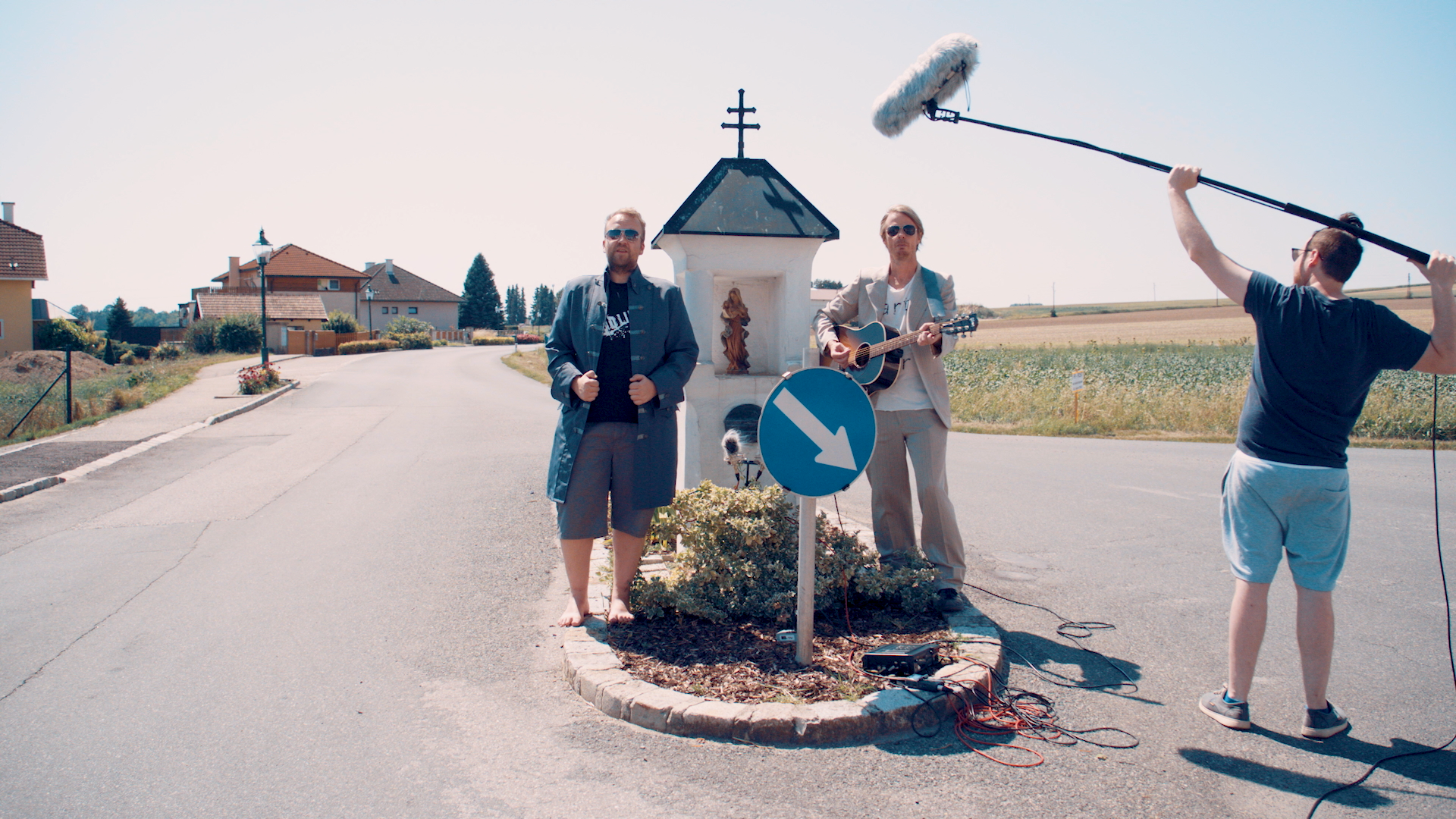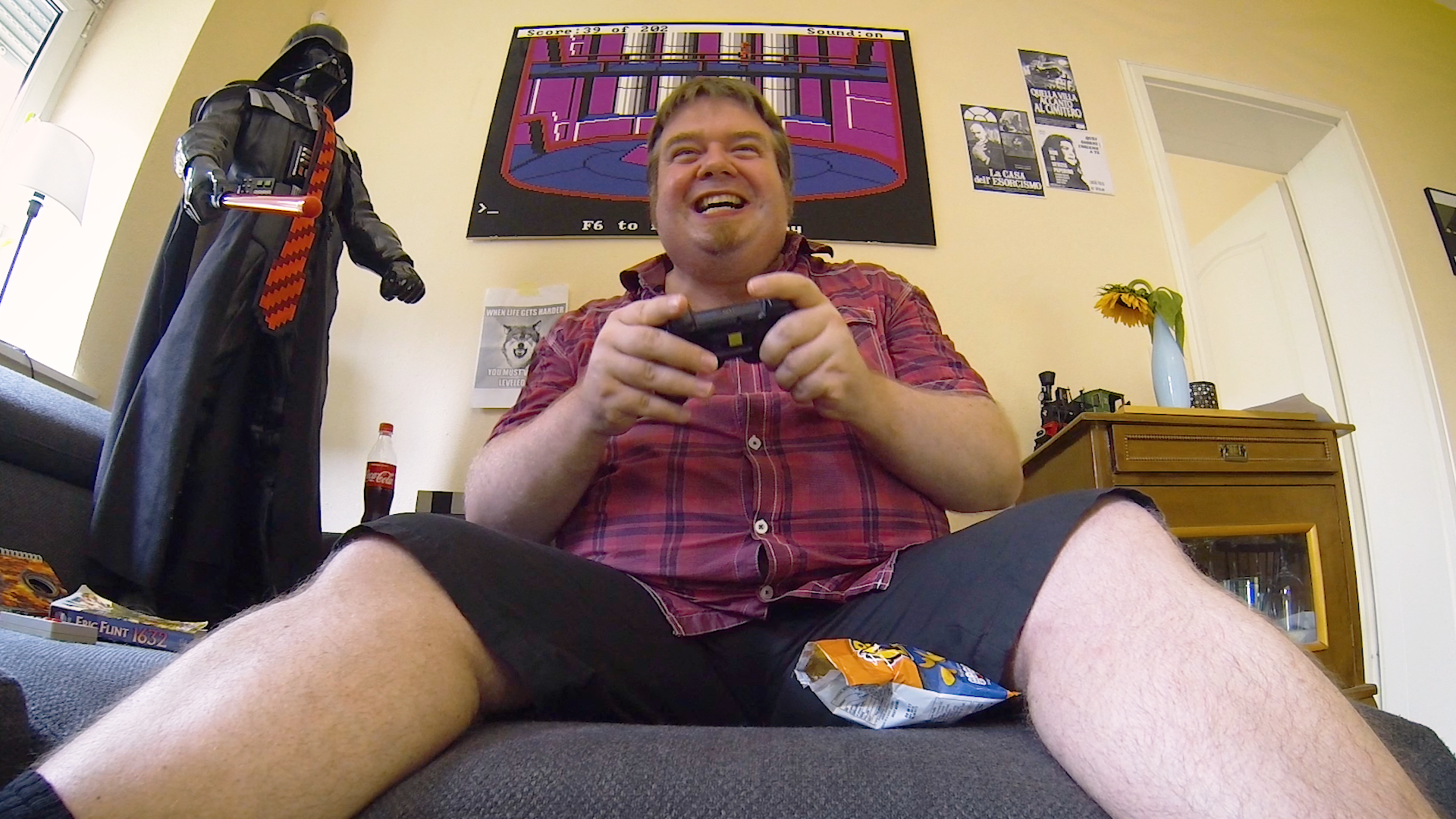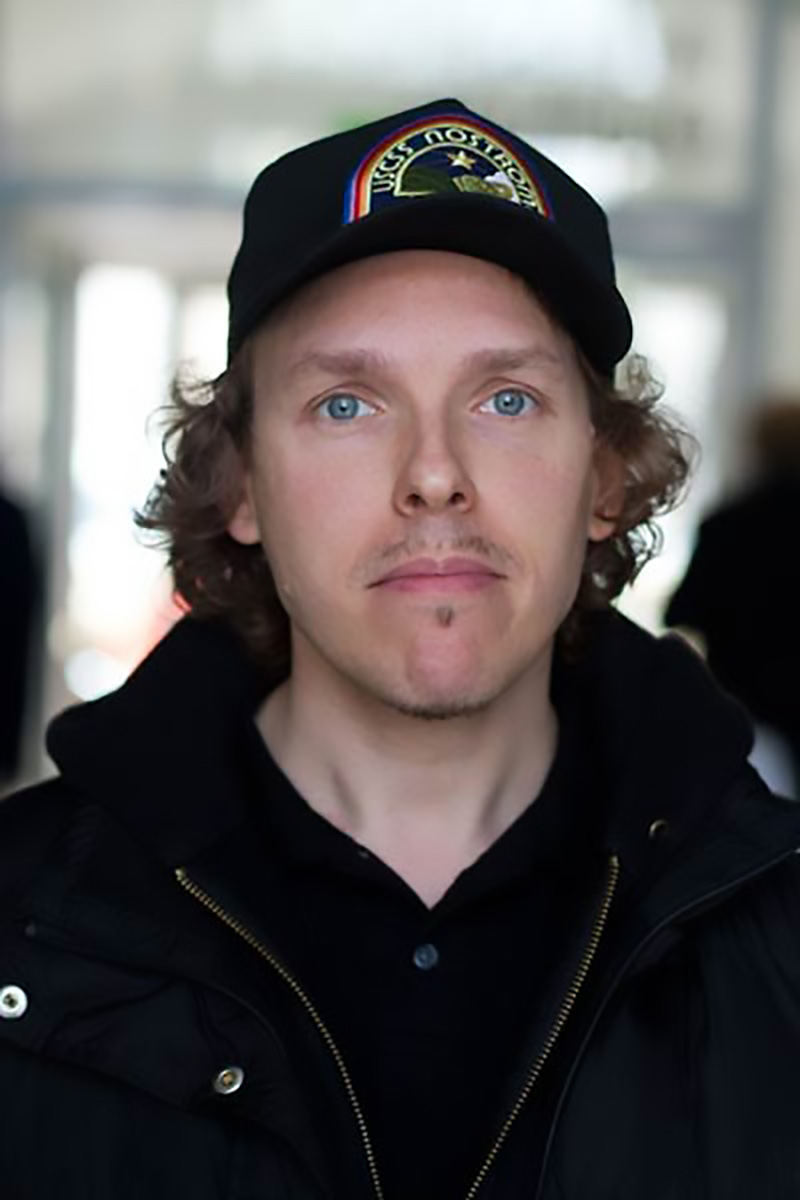GLOSSARY OF BROKEN DREAMS
a documentary by Johannes Grenzfurthner
“The trouble with writing fiction is that it has to make sense, whereas real life doesn’t.”
Our featured event at the art space Hole in the Sky Collective on July 25, the screening of the movie Glossary of Broken Dreams by the Austrian filmmaker Johannes Grenzfurthner, who calls himself a “Lumpennerd”, invites us to go deeper, think closer, question more and confront ourselves with concepts, ideologies, counter-culture, identities and what is happening around us, in our reality. Or is it just pure fiction all together?
For this month's contribution to our pillar “Human Rights” we are offering you to go on an intellectual ride: Open your mind, step away from your well-known established beliefs as well as thoughts and let the ideas, words and concepts that Johannes tries to capture in his monumental mosaic documentary, conquer you, at least for a little while …
You can read more about him and his ideas on his website and in the full interview At the Golden-Calf Slaughterhouse with the filmmaker, published on the blog Boing Boing, from which we selected the following thoughts, ideas and quotes.
“A highly intelligent and topical film, Glossary of Broken Dreams is an engaging epistemological documentary that will have you chuckling about, choking on, and considering the validity of, your political ideology.”
“Sometimes it feels as if the entire content of Wikipedia would be rammed into your brain with a USB stick.”
“Glossary of Broken Dreams is a nerdgasm of creative consciousness meets good intentions and abundant doses of intellectually informed human compassion. It’ll fuck with your mind. Then laugh.”
Glossary of Broken Dreams is an inconvenient, entertaining movie, born out of the frustration that debate culture (not only) on digital platforms has become radically fragmented and fractualized, making it hard to call it discourse.
“Everybody spouts bombastic words. Resistance! Privacy! Activism! Market! The Left! And yet, no-one really knows what they mean – or what can be achieved with these argument killers.
...and then I go about explaining the political terms and concepts of the early 21st century that,
to me, seem to be the most important. My aim was to assess these concepts and, where necessary, to sacrifice them. Death to the golden calves!
I also grew up in a time when there wasn’t much aside from popular culture. Even people like Marcel Reich-Ranicki or other prophets of the educated bourgeoisie were presented to me through TV-channels and in TV-cockfights. When would I ever go to the theater, or a museum, or a real concert? There was no authenticity. The world was made of color points on a Grundig TV set. “World” was merely the perception of copies of copies of copies, and even the original was already an interpretation. This situation is problematic, especially with regard to growing up politically. I was 16 when the USSR was dissolved. As a kid, I was afraid of the Eastern Block and cultural products such as Rocky IV or Red Dawn only fueled my fear!
Now, 25 years and dozens of digital revolutions later, we are faced with the fact that communication possibilities are in ruins.
The human is a narrative being. We construct emotional machines, so-called ‘stories’, to communicate, to share the world in which we live and make it collectively experienceable.
We live in times of radical attention economy, after all.
I think that distinguishing between originals and copies is a non-issue.
Humans are copying machines, genetically and culturally. If a cell stops copying, it’s a dead cell. If culture can’t copy freely, it withers away.
One of my examples is the concept of privacy that, at the moment, everyone coddles like a puppy… I think it’s time to change our thought patterns here. Instead of trying to find ways to defend our privacy come hell or high water, we should ask ourselves why privacy is such a major concern for us? Is what we’re trying to achieve here just reformist symptom-control rather than a solution to the underlying problems?
I wouldn’t have made this movie if I didn’t believe that we can do better. Let me be clear about one thing, as stated in the first part of the movie, we’re all part of the problem.
My main objective is to distance myself from the fairy tale of an enlightened public and the utopia of objective news.
In a world of micro-societies, it has become difficult to refer to something like citizens or subjects. What used to characterize a political person in the past has now turned into a fight against absolute fragmentation. I ask myself, though, if this change can be stopped by demanding civic values alone. Open society isn’t the superglue we used to think it was.
My movie is an attempt to rethink old ideas (and therefore, of course, ideologies). I don’t think of that as being pessimistic. To the contrary, it means actively approaching the situation.
”
About the Filmmaker | Johannes GrenzfurthNer
Johannes Grenzfurthner is an award-winning artist, filmmaker, writer, performer, and researcher.
He is the founder and artistic director of monochrom, an internationally-acting art and theory group. He is founder of movie production company monochrom Propulsion Systems.
He is a lecturer on culture jamming (at the University of Arts and Industrial Design in Linz, Austria) and art theory (at Leuphana University in Lueneburg, Germany).
He is head of "Arse Elektronika" (sex and tech festival) in San Francisco, "Hedonistika" (food tech festival in Montréal and Tel Aviv) and host of "Roboexotica" (Festival for Cocktail-Robotics) in Vienna.
He directed the dark sci-fi comedy "Die Gstettensaga: The Rise of Echsenfriedl" (2014) and the feature-length documentaries "Traceroute" (2016) and "Glossary of Broken Dreams" (2018). He is currently working on several other film projects (e.g. "Tycho").
He gave talks at SXSWi, O'Reilly ETech, FooCamp, Maker Faire, HOPE, Chaos Communication Congress, Google (Tech Talks), ROFLCon, Ars Electronica, Transmediale, Influencers, Mozilla Drumbeat Barcelona, Neoteny Camp Singapore, Columbia University, Carnegie Mellon University.
He and his projects have been featured in The New York Times, Liberation, Spiegel, San Francisco Chronicle, CNN, Reuters, Slashdot, Playboy, Boing Boing, New Scientist, The Edge, the Los Angeles Times, NPR, ZDF, Gizmodo, io9, Wired, Sueddeutsche Zeitung, CNet, Toronto Star...
Johannes' artistic and textual work are contemporary art, activism, performance, humor, philosophy, postmodernism, media theory, cultural studies, sex tech, popular culture studies, subversion, science fiction and the debate about copyright and intellectual property.
Photo | © Johannes Grenzfurthner, Glossary of Broken Dreams

